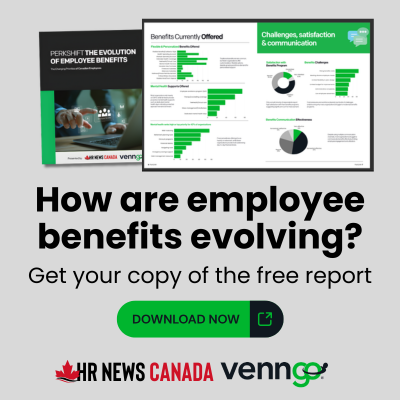Some threads, when you pull on them, can unravel our very being. The death of a loved one is on the top of that list — be it family, friend, or even a cherished pet. It can leave us devastated, grasping for meaning and solace, as we navigate the loss.
Yet in the stark world of work, of HR policies and legislative wording, bereavement is often reduced to cold definitions and finite days. Three for a close family member. Zero for a friend. And if your dog passes? Not even a whisper of acknowledgement.
In Ontario, for example the Employment Standards Act enumerates the people who qualify for two unpaid days off. Spouse, parent, child, grandparent, son- or daughter-in-law, sibling, or a dependent relative.
Not on the list? Aunt, uncle, nephew, niece. Also missing? Best friend. Your in-laws. Your neighbour.
People are complicated. Relationships are complex. A worker who has been estranged from their parents for decades might not bat much of an eye at the news their father passed in his sleep. But that same person could be overcome at the sudden loss of a dear friend. The legislation, along with many a workplace policy, doesn’t care.
You get time off to grieve for the dad you never cared about. But for your best friend, the one whose wedding you spoke at, who you vacationed with, and who was your rock in tough times? Nothing. See you at work tomorrow.
To a certain extent, I get it. There has to be rules, limits, some sort of guide post to look at for employers and managers in making these decisions. While most people won’t abuse a leave, there are inevitably a few bad apples who will milk the system for as much time off work as possible.
There’s a humourous, if a tad macabre, meme I’ve seen making the rounds over the years on social media. “The best part about starting a new job is that both your grandparents are alive again,” it reads.
I’ve lost both my parents. My dad died, killed in a car crash near his home in Cincinnati, when I was 21. My mom passed away in 2014, less suddenly, but it was still a shock to the system. In both cases, I was able to lean on bereavement leave — with no questions asked.
“Take as much time as you need,” was the answer from my employers. Both times, I took five days off to make funeral arrangements, console loved ones, and navigate my own internal grief.

But when Dexter, our nine-year-old Aussie-doodle, passed in 2020, I didn’t get any time off. The tears were just as real, and the impact on my daily life arguably even more so than losing my parents. My dad, though we were close, moved to another city that was a five-hour drive away.
My mom, living in Windsor, Ont., was about a four-hour drive from my home. We talked frequently, but I didn’t see her in person more than a couple of times per year.
Dexter, though, was a daily fixture. Regular walks, wagging tail, unconditional love and boundless joy. His passing left a massive hole in our house. If you’re a dog lover, you get it.
Comedian Jon Stewart recently announced the passing of his dog Dipper on The Daily Show.
“In the world of good boys, he was the best,” he said, his voice cracking. “He was ready. He was tired, but I wasn’t.”
I’ll admit to getting choked up watching it. If you love dogs, if you’ve lost a dog, you know the pain. It’s real. It can be overwhelming, and just as tough as losing a person.
From an HR standpoint, the solution can never be unlimited time off, as we have to balance our empathy for individuals with the practicality of the business. Plus, there is some real truth in the old nugget that work takes your mind off your problems. It’s healthy to get back to your routine sooner than later.
But what it absolutely calls for is flexibility — and not the kind a manager decides to do on his own behind a closed door, swearing the beneficiary to secrecy. Open flexibility, defined in a policy, is what we need.
Your ability to take time off should be tied to the grief the loss makes you feel, not the definition of “loved one” in legislation. We trust our employees with our businesses. We must, therefore, trust them in their time of need.





